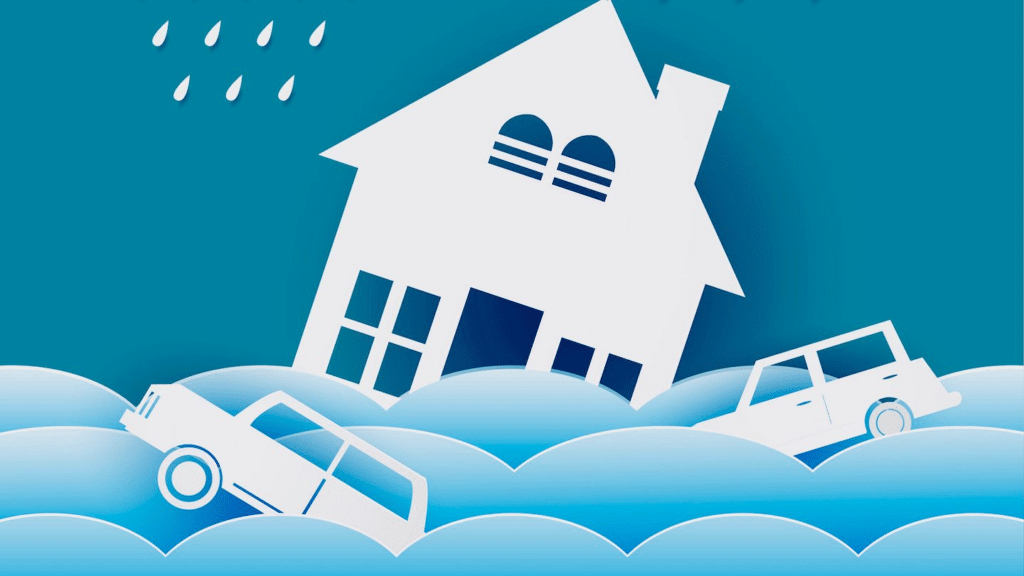Home insurance for natural disasters

Understanding the importance of securing your home against the unpredictable forces of nature is critical for homeowners. With the rise in natural catastrophes, safeguarding your property through natural disasters home insurance is not just wise, but necessary.
This post will delve into various aspects of home insurance tailored to natural catastrophes, highlighting the need for ample coverage, the intricacies of policies, and practical advice for securing your home and financial future against nature's unexpected turns.
Natural Disasters Home Insurance: Why It's Essential
When calamity strikes, the aftermath can be emotionally and financially devastating. Whether it’s a hurricane, earthquake, flood, or wildfire, these events are often unpredictable and can cause immeasurable damage to your home. Insurance coverage specifically designed for natural catastrophes can be the difference between a swift recovery and prolonged hardship.
Traditional home insurance policies may not cover all types of natural disasters, leaving many homeowners unaware of their policy's limitations until it is too late. It's imperative to understand what your standard policy includes and where additional disaster insurance is needed.
Furthermore, certain regions are more susceptible to specific natural events, and in these areas, having the right insurance is even more crucial. Home insurance for natural disasters isn't just about protection—it's about peace of mind.
Assessing the risks associated with your geographic location can help determine the necessary coverage for your property. This allows you to tailor your insurance plan to cater specifically to the perils native to your area.
Key Coverage Options for Home Owners
Securing a policy that provides comprehensive protection against natural catastrophes involves understanding the various types of coverage available. Common options include coverage for damage caused by windstorms, hail, earthquakes, and floods. Each of these typically requires separate endorsements or policies.
Not all disaster insurance policies are created equal, and the details matter. For instance, flood insurance is often excluded from standard home insurance policies and must be purchased separately. Similarly, earthquake coverage is not typically included and also requires a separate policy.
While it may seem overwhelming, an insurance professional can help navigate these options and guide you toward the best coverage for your needs. They can assist in evaluating your current situation and risk profile, ensuring that your insurance strategy is both comprehensive and cost-effective.
Understanding Policy Limitations and Exclusions
It's vital to read the fine print of your insurance policy to understand what is and isn't covered under your plan. Disaster insurance often comes with specific limitations and exclusions that can affect your coverage at critical moments.
Some policies may have separate deductibles for specific types of natural disasters, while others might limit the amount they pay out for certain perils. Understanding these details prior to a disaster can help in making an informed choice about your insurance plan and in preparing for any potential out-of-pocket expenses.
Homeowners should also be aware of any time restrictions on filing claims—immediate action may be required post-disaster to ensure policy responses.
Practical Steps to Secure the Right Coverage
Begin by taking a comprehensive inventory of your home and its contents, which can be crucial in the event of a loss. Knowing the value of your personal property and the cost to rebuild your home is a key step in acquiring the right amount of coverage.
Shop around for insurance options and compare quotes from multiple providers to find the most suitable coverage at the best price. Leverage resources like state insurance departments, which often provide consumer guides to disaster insurance.
Consider a higher deductible if it means you can get more comprehensive coverage. While this may result in a higher out-of-pocket cost when you file a claim, the expanded coverage can offer greater protection in the event of a severe disaster.
Don’t forget to review and update your insurance regularly. As your home increases in value or as you make improvements, you should adjust your coverage to match these changes.
Preparation and Mitigation: Reducing Your Risk
While insurance provides financial recovery, proactively minimizing the risk of damage to your home is just as important. Steps such as reinforcing your roof, installing storm shutters, and updating your building to current codes can lessen the impact of natural disasters.
Mitigation efforts not only safeguard your property but can also lead to lower insurance premiums. Insurance companies often provide discounts for homes that are better equipped to withstand disasters.
Preparing an emergency plan and maintaining an up-to-date home inventory are additional measures that can aid in swift recovery, should a disaster occur.
Dealing with the Aftermath: Claims and Recovery
When disaster does hit, knowing how to efficiently file a claim can expedite your recovery process. Document all damages with photographs or videos, keep a record of communication with your insurance provider, and maintain receipts for any repairs or temporary housing costs.
An adjuster will assess the damage to your property, and a solid understanding of your policy will allow you to discuss your claim knowledgeably and ensure fair treatment. Patience will be crucial during this stressful time, as high volumes of claims could delay the process.
Moreover, don't overlook available government aid. In some cases, federal or state disaster assistance can supplement your recovery beyond your insurance coverage.
Due diligence in securing home insurance against natural disasters is not just a financial safety net—it's a critical component of responsible homeownership. With the right coverage in place, homeowners can significantly mitigate the financial impacts of natural catastrophes and focus on what matters most: rebuilding and moving forward.

Related